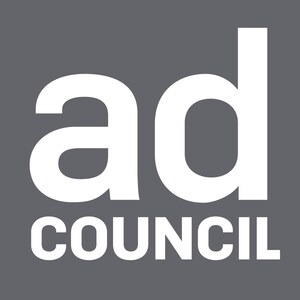SAMHSA and Ad Council to Launch Mental Health Campaign for the African American Community
PSAs debut at Howard University and Colleges and Universities Nationwide as part of First Annual HBCU National Mental Health Awareness Day
WASHINGTON, Feb. 23 /PRNewswire/ -- The Substance Abuse and Mental Health Services Administration (SAMHSA), working in collaboration with the Ad Council and the Stay Strong Foundation, announced today the launch of a national public service advertising (PSA) campaign designed to raise awareness of mental health problems among young adults in the African American community. The new PSAs were unveiled at a Black History Month event at Howard University this morning to coincide with the first annual HBCU National Mental Health Awareness Day. The launch was telecast to colleges and universities nationwide.
To view the multimedia assets associated with this release, please click: http://multivu.prnewswire.com/mnr/adcouncil/42519/
(Photo: http://www.newscom.com/cgi-bin/prnh/20100223/MM58165 )
Mental illnesses, including depression, anxiety, bipolar disorder and schizophrenia, are widespread in the U.S. and often misunderstood. According to SAMHSA, in 2008 there were an estimated 9.8 million adults aged 18 or older living with serious mental illness. Among adults, the prevalence of serious mental illness is highest in the 18 to 25 age group, yet this age group is also the least likely to receive services or counseling. In 2008, 6.0 percent of African Americans ages 18-25 had serious mental illness in the past year. Overall, only 58.7 percent of Americans with serious mental illness received care within the past 12 months and the percentage of African Americans receiving services is only 44.8 percent.
“Raising understanding and attention to these issues within the African American community will provide greater opportunities for those needing help to receive effective mental health services,” said Kathryn A. Power, Director of SAMHSA’s Center for Mental Health Services.
Created pro bono by Grey Worldwide through the Ad Council, the campaign aims to promote acceptance of mental health problems within the African American community by encouraging, educating and inspiring young adults to step up and talk openly about mental health problems. The television, radio, print and Web ads feature real personal stories of African Americans dealing with mental health problems, and they aim to engage those in the community to support young adults who need help. The PSAs direct audiences to visit a new website, www.storiesthatheal.samhsa.gov, where they can learn more about mental health problems and how to get involved.
“According to our research and the leading mental health experts, young adults with mental health problems are more likely to seek help if social acceptance is broadened and they receive support and services early on,” said Peggy Conlon, president & CEO of the Ad Council. “We are proud to continue our partnership with SAMHSA to address these issues in the African American community and help create the necessary societal change that will decrease the negative attitudes that surround mental illness, and ultimately inspire those who want help to get it.”
Terrie M. Williams, MSW, co-founder of The Stay Strong Foundation, collaborated on the development of the Web videos and PSA materials and serves as a campaign spokesperson. The Stay Strong Foundation works to support, educate and inspire African American youth through a series of programs and events that are designed to raise awareness of teen issues, promote the personal well-being of young people and enhance their educational and professional development.
“It is the work of the Stay Strong Foundation and my personal mission to educate everyone, and in particular the African American community, about depression and its impact on our communities,” said Williams. “Every day so many of us wear the “mask” of wellness that hides our pain from the world. Now is the time to identify and name our pain -- minus the myths and the stigmas -- and seek the help so many of us need.”
SAMHSA’s Campaign for Mental Health Recovery partners include the Centers for Disease Control and Prevention (CDC), the National Institute of Mental Health, state mental health agencies, leading researchers on stigma and a broad coalition of stakeholders, including organizations that represent provider organizations and consumer and family member groups. The Campaign held a series of regional meetings to develop a grassroots network to support the Campaign and provide assistance with anti-stigma efforts to states and local communities.
A resource guide entitled, “Developing a Stigma Reduction Initiative,” is also a part of the campaign and is based on the evaluation and lessons learned from the Elimination of Barriers Initiative. The guide provides information on how to mount a statewide anti-stigma campaign, examples of outreach materials, reports on the best practices for stigma reduction, and lists important resources for technical assistance. Copies of the guide can be downloaded at www.mentalhealth.samhsa.gov/publication/allpubs/sma06-4176/ or by calling SAMHSA’s Health Information Network at 1-877-SAMHSA7. SAMHSA also maintains a national technical assistance center called the ADS Center (Resource Center to Promote Acceptance, Dignity, and Social Inclusion) to help States, communities, and individuals get the necessary information and resources to counter misperceptions, prejudice and discrimination associated with mental illnesses. For more information, visit www.promoteacceptance.samhsa.gov.
“In general, mental health problems are difficult to talk about,” said Rob Baiocco, EVP and managing partner of Grey New York. “But the second someone opens up and tells their specific personal story you instantly realize what they are dealing with. It’s such an immediate, intuitive and emotional understanding. And from that understanding comes the healing.”
Historically Black Colleges and Universities’ Center for Excellence in Substance Abuse and Mental Health at Morehouse School of Medicine, a grant funded through (SAMHSA), created National HBCU Mental Health Awareness Day. The HBCU Mental Health Awareness Day is the first national effort to promote behavioral health on HBCUs. The all-day event is being co-hosted by three additional HBCU institutions, Howard, Elizabeth City State University and Florida Agricultural and Mechanical University. The purpose is to increase public knowledge and student awareness about mental health issues and to foster a more supportive and informed environment on HBCU campuses and in the community. For more information, visit www.hbcucfe.net.
The Ad Council and SAMHSA first launched the Campaign for Mental Health Recovery nationwide in December 2006. Additional public service efforts designed to reach Hispanic Americans, Asian Americans and Native Americans will also be launched this spring. To view the ads, please visit www.adcouncil.org. The PSAs will air in advertising time that will be entirely donated by the media.
SAMHSA is a public health agency within the U.S. Department of Health and Human Services. The agency is responsible for improving the accountability, capacity and effectiveness of the nation’s substance abuse prevention, addictions, treatment and mental health services delivery system. SAMHSA can be reached at www.samhsa.gov.
The Ad Council (www.adcouncil.org) is a private, non-profit organization that marshals talent from the advertising and communications industries, the facilities of the media, and the resources of the business and non-profit communities to produce, distribute and promote public service campaigns on behalf of non-profit organizations and government agencies. The Ad Council addresses issue areas such as improving the quality of life for children, preventive health, education, community well-being, environmental preservation and strengthening families.
The Stay Strong Foundation (SSF) is a 501(c)(3) organization founded by Terrie M. Williams and Xavier Artis in 2001 to empower America’s youth. The Foundation encourages corporate and individual responsibility; develops educational resources for youth and youth organizations; provides and coordinates internships; sets up mentoring opportunities; and facilitates visits by prominent individuals and business professionals to schools, libraries, youth organizations and group homes.
SOURCE The Ad Council
WANT YOUR COMPANY'S NEWS FEATURED ON PRNEWSWIRE.COM?
Newsrooms &
Influencers
Digital Media
Outlets
Journalists
Opted In






Share this article